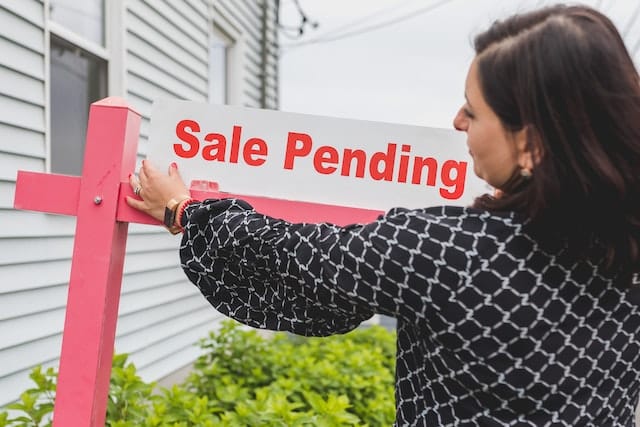
How Long Does It Take to Close on a Home in NYS?
Whenever you start to ponder the idea of selling your home, there may be something that holds you back. On the other hand, it may be the home closing process itself that is giving you pause.
Depending on how urgently you need the money, you may find that going through the closing process does not make sense for your timeline.
Before you abandon the idea of selling altogether, let’s first discuss the closing process in greater detail. We will also discuss potential ways for you to speed up the closing process on a home sale. Stay tuned so you can learn how to navigate this process better.
Breaking Down the Process of Selling Your Home
If you are looking to sell your home in New York State, you will first need to go through a multi-staged process.
Ideally, you should first conduct some research. Check out market trends and seasonal data to determine if now would be a good time for you to sell your home.
After that, you must let buyers know that your home is available. You can do that by hiring a real estate agent and asking them to list your property for sale. This is the more conventional process and getting offers from prospective buyers can take some time.
Alternatively, you can speak directly to reputable cash buyers and ask them if they are interested in your property. Opting for this method makes sense if you want to make selling your home as easy and profitable as possible.
From there, conversations will begin between you and your potential buyers. Negotiations will follow once certain buyers show genuine interest in purchasing your property.
The closing process begins once you and your buyer come to an agreement. You might have assumed that you would finish the closing process in a few days, but that is rarely the case.
How Long Does the Home Closing Process Take?
The home closing process can turn into a drawn-out affair.
Per this article from Homelight, the loan origination platform provider ICE Mortgage Technologies says that the average time to close a home sale involving a purchase loan is 51 days. That number is accurate as of October 2022.
If you go back to last year, you will find that the closing process takes longer now. Last September, ICE Mortgage Technologies reported that the average closing time on homes purchased via loans is 47 days.
Digging deeper into the numbers reveals more interesting tidbits regarding the closing process.
This year, there is no discernible difference between conventional and Federal Housing Administration (FHA) loan closing times. However, it was a different story last year. The average closing time for transactions that involved conventional loans was 46 days. Meanwhile, closing times for homes purchased using FHA loans dragged out to 52 days.
How Long Does the Home Closing Process Take in New York State?
Property owners in New York State should consider themselves lucky if they can close a sale in around 50 days or so. In New York State, deals made using loans will often be handed over to lawyers once they enter the closing stages.
The closing stage going well beyond 60 days is normal in New York State. However, the closing process may last about three or even four months if issues arise.
You should be aware of how long closing on a home in New York State may take before you proceed with any plans to sell your property. The extended delay between finalizing the deal and the day it is officially closed may be too long for you.
Explore all your available options before accepting any offer. By doing so, you can be certain that you are getting the best deal in terms of dollars and convenience.
What Are the Steps Involved in the Home Closing Process?
Learning that the closing process for a home sale often drags out for months may surprise you. However, that fact becomes considerably less surprising once you understand the many steps involved in closing a home sale.
Many steps in closing a home sale also involve the lender and the buyer. Let’s go over those steps in this section of the article.
Sign the Purchase Agreement
The closing process officially begins after you and the buyer sign the purchase agreement.
The purchase agreement details the selling price and other aspects of the deal you struck with the buyer. For instance, the purchase agreement could indicate your deadline to complete the sale. If the buyer wants to take ownership of your property, they must fulfill the terms of the purchase agreement.
Typically, signing the purchase agreement only takes three days at most.
The Buyer Secures Their Financing
With the purchase agreement signed, the buyer can now work on securing their financing. This is the part of the process where the buyer gets the loan terms. The buyer will also need to supply all the necessary documentation to their chosen lender to secure the financing they need to purchase your home.
Buyers often need about one to two weeks to finish securing their loan. You can tell the buyer to work on securing mortgage pre-approval while you are still negotiating with them to reduce the amount of time that will have to be devoted to this step.
Your Home Is Appraised
Since home inspections are usually before the purchase agreement is signed, you will not need to go through that again during closing. Instead of an inspection, your buyer will hire someone to appraise your property.
The appraisal process is critical because it will tell the lender how much money they should hand over to the buyer.
Issues can also arise during the appraisal, especially if the appraiser’s valuation is well below what you expected. You may need to negotiate the deal again or get a second opinion if you believe the first appraiser made a mistake.
From start to finish, the appraisal process often takes one to two weeks.
The Loan Is Underwritten
The next step of the process involves the mortgage underwriter evaluating your buyer’s loan. Before the underwriter approves your buyer’s loan, they will first examine their assets and financial status.
Underwriters conduct a thorough review before making a final decision. That is why this part of the process can last for over a month.
Final Clearance to Close Is Handed Down
If everything goes according to plan, your buyer should receive the final clearance to close at this point. Once they get to this point, they will review their loan terms and decide if they want to proceed.
The mortgage lender typically gives their customers three days to study the loan agreement before they request a decision. After the three-day waiting period, your buyer can sign the loan agreement to receive the funds they will use to purchase your property.
Complete the Sale of Your Home
As soon as your buyer receives the money, the two of you can work on finalizing the sale. This is where you sign all the documents and pay the closing costs. You must also transfer the title to your buyer’s name to seal the deal officially.
How Can You Speed Up the Closing Process on a Home Sale?
Going through the closing process to sell your home is a lot of work. If you have a full-time job and kids to take care of, it is an undertaking that you may simply not have enough time for.
So, what are your other options if you do not wish to go through the conventional closing process? You should strongly consider partnering with a cash-buying company in that scenario.
Cash-buying companies make selling a home easier and faster.
The closing process changes because a lender no longer has to be involved. In the previous section, you may have noticed that the reasons why the closing process may drag on often come from the buyer’s side.
Because the lender has to be involved in nearly every step of closing the deal, the process inevitably takes longer. In addition, since different people need to get involved in the deal, they also contribute to extending the closing timeline.
You do not need to worry about that if you are selling your New York State home to a cash-buying company. The only parties you deal with on the other side are the cash buyers.
Deals involving cash buyers can be completed quickly. However, once you accept the offer from the cash buyer, the closing process will take around two weeks. Given that the conventional closing route takes thrice as long, it is clear that working with a cash buyer is in your best interests if you wish to move your New York State property as soon as possible.
What Are the Steps Involved in Selling Your Home to a Cash-Buying Company?
Selling your home to a cash buying company is significantly simpler than selling it to a typical buyer. To illustrate the difference between those two processes, we will also detail the steps involved in closing a sale to a cash-buying company.
Solicit an Offer from the Cash-Buying Company
Once a cash buyer shows interest in your property, you can ask them to put in a formal offer. This probably will not be the final offer for your property, but you should ask for it anyway to get a reference point moving forward.
Refer to the initial offer later to check if the buyer is still negotiating in good faith.
Examine Their Offer for Your Property
After receiving the offer, take the time to examine it carefully with your real estate agent.
The offer should detail exactly how much the cash buyer is willing to pay as well as any other terms pertinent to the deal. Make sure your real estate agent gets their eyes on the offer so they can tell you if it is in line with what other sellers have received.
Request Proof That the Cash Buyer Can Complete the Purchase
It is nice to see a cash offer, but you must first confirm that the buyer has the funds to complete the purchase. Ask the company to provide evidence that they can pay for your home. They do not need to provide specific documents, but you should ask them to present as much evidence as they can.
This time, you may want to get a lawyer involved so they can verify that the company you are negotiating with is legitimate. Do not worry about the process getting delayed. Even if you enlist outside help to confirm the legitimacy of your buyer, the entire process should only take a few days at most.
Allow the Cash-Buying Company to Conduct Their Inspection and Appraisal
The cash-buying company will not simply hand over the money after sending you their offer. They will also want to look closely at the property they are purchasing.
Allow them to conduct an inspection and appraisal to present a more informed offer. You will likely get their final offer once they can complete these parts of the closing process.
Expect this stage to take the longest if you decide to sell your home to a cash buyer.
Review the Final Offer
With the appraisal and inspection completed, you should now get the final offer from the company. Again, like with the earlier offer, review the contract with your realtor before agreeing to it.
Finalize the Sale
All that is left now is to finalize the sale. Sign the documents and transfer the title to the cash-buying company so you can put a bow on the deal.
Contact us at House Buyers LI if you are looking for a reputable cash buyer in New York State. Allow us to make the process of selling your home less stressful and more convenient.

